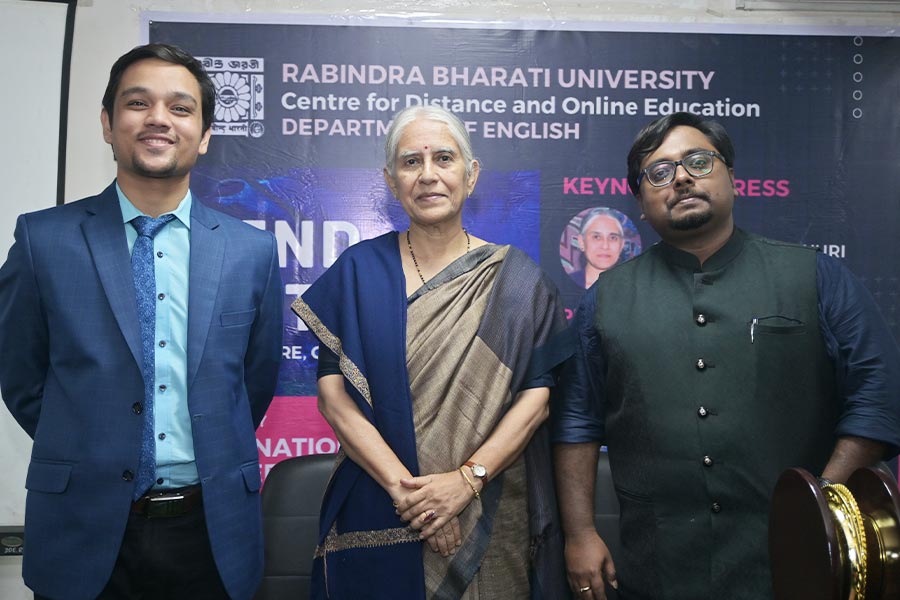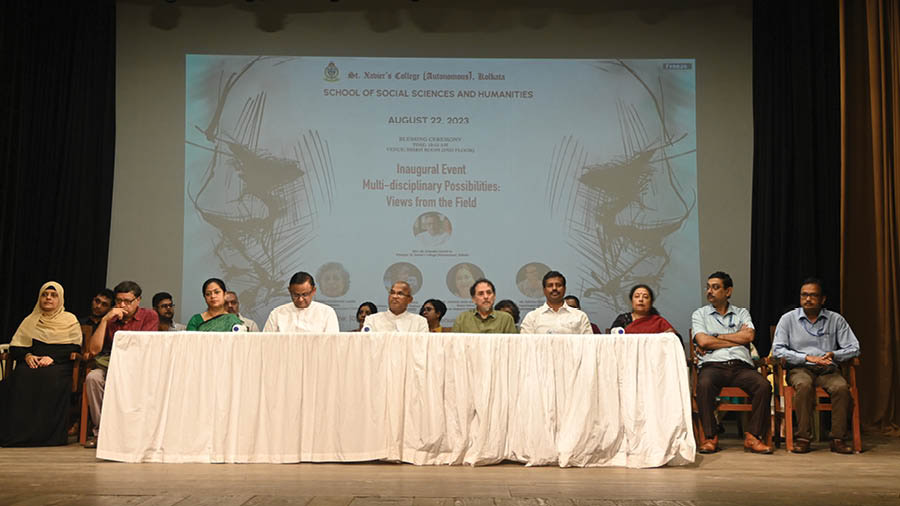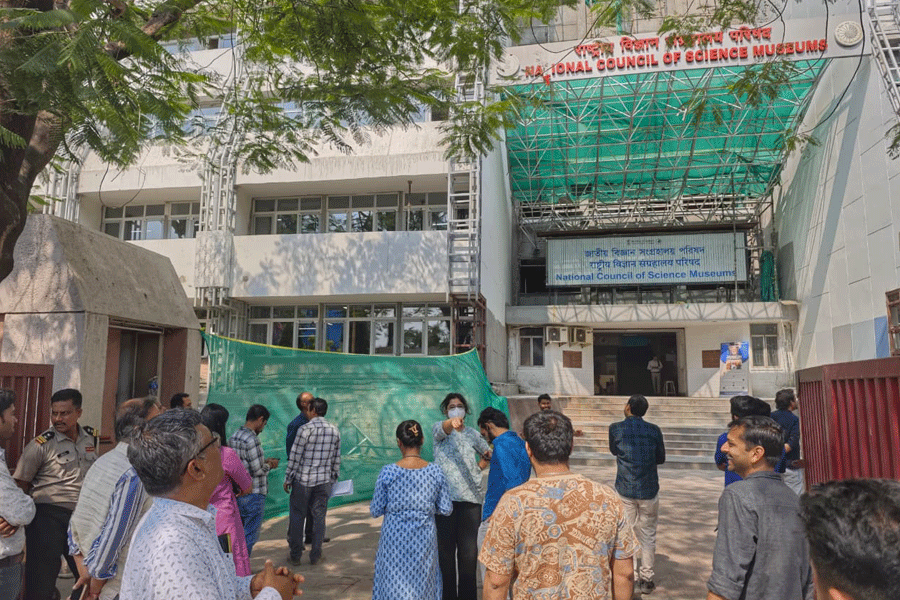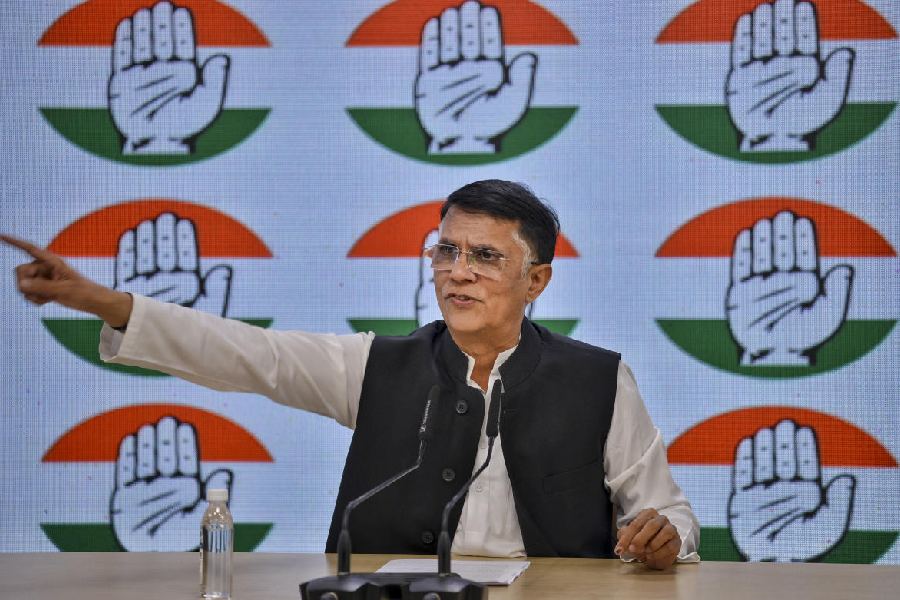A confluence of ideas and theories around the mind and the arts took place at “Mind Matters: Literature, Cinema and Culture” on January 19 and 20 at the Centre for Distance and Online Education (CDOE), Rabindra Bharati University in Salt Lake. The conference was organised by the Department of English and focused on the fundamental framework of the human mind, the nuances that constitute it, and its ever-dynamic relationship with the arts.
The conference commenced by paying tribute to Rabindranath Tagore followed by a welcome song performed by professors from the Department of Rabindrasangeet. The official welcome address was delivered by Ashis Kumar Das, director of CDOE, along with commencement speeches by the convenors of the conference, Aritra Basu and Rishiraj Pal, assistant professors at the Department of English. The plenary speakers were felicitated with engraved mementos and ceremonial shawls by students of the Department of English.
Exploring multiple aspects of the mind through multiple lenses
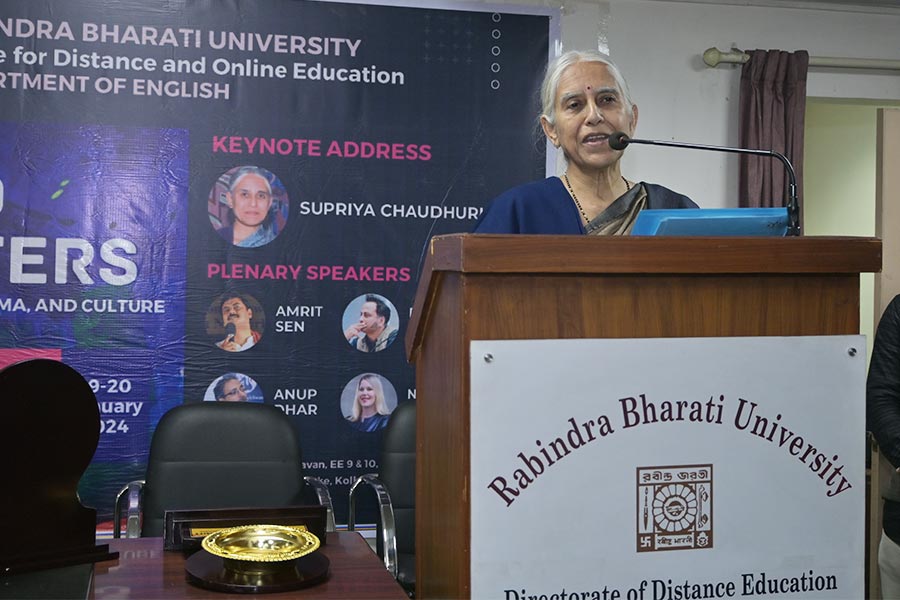
Chaudhuri delivered the keynote address for the conference
The keynote speech on the first day of the conference was delivered by Supriya Chaudhuri, professor (emerita) at the Department of English, Jadavpur University. Chaudhuri’s talk entitled “Missing Persons: Mind, Consciousness and Representation” began as a comment on modern philosophies of the mind, arguing that while recent developments have foregrounded issues of consciousness, the investigation into the notion of personhood (which was earlier deemed essential by theorists like John Locke and Gilbert Ryle) has been written off as flawed philosophy. Even so, it remains as a powerful narrative motif that informs literature and art. She further commented upon the varied mental states in a person, the formation of a continuous or discontinuous consciousness, and the natures of thought, volition and imagination as representational issues in literature, cinema and art.
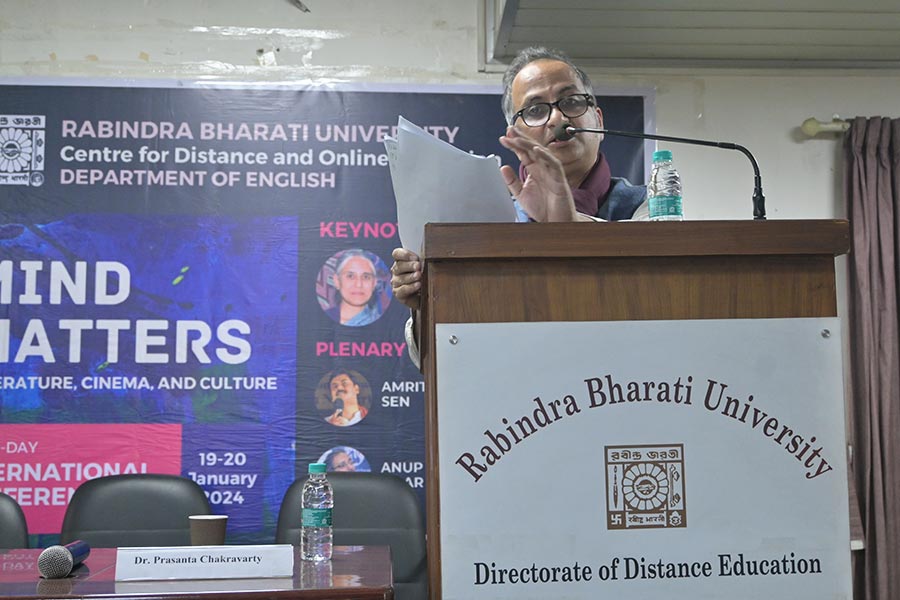
Prasanta Chakravarty proposed that human existence is marked by uncertainty and complexity
Chaudhuri’s keynote speech acted as the conduit between the theme of the conference and the plenary sessions. The first plenary session of the first day was delivered by Prasanta Chakravarty, associate professor at the Department of English, University of Delhi, and chaired by Anup Dhar, distinguished visiting fellow at BML Munjal University, Haryana and former fellow at the Ruhr-University Bochum, Germany. Chakravarty’s talk entitled “We Are Not Mistaken, But Muddled” proposed that human existence is marked by uncertainty and complexity, which challenge the very nature of what one can know. Because one can never know how much one can or cannot know, independent critical thinking is replaced by metaphorical projections and norms of social conformity. What makes this process more opaque is the inevitable separation between every person. Chakravarty’s lecture considered an exploration of knowledge that transcends the boundaries of knowing, and imagination as a substitute of knowledge where knowability fails. He focussed on this gap between knowledge and imagination by viewing this separation as a moment of self-discovery, while referencing his ideas through the works of American philosopher Stanley Cavell.
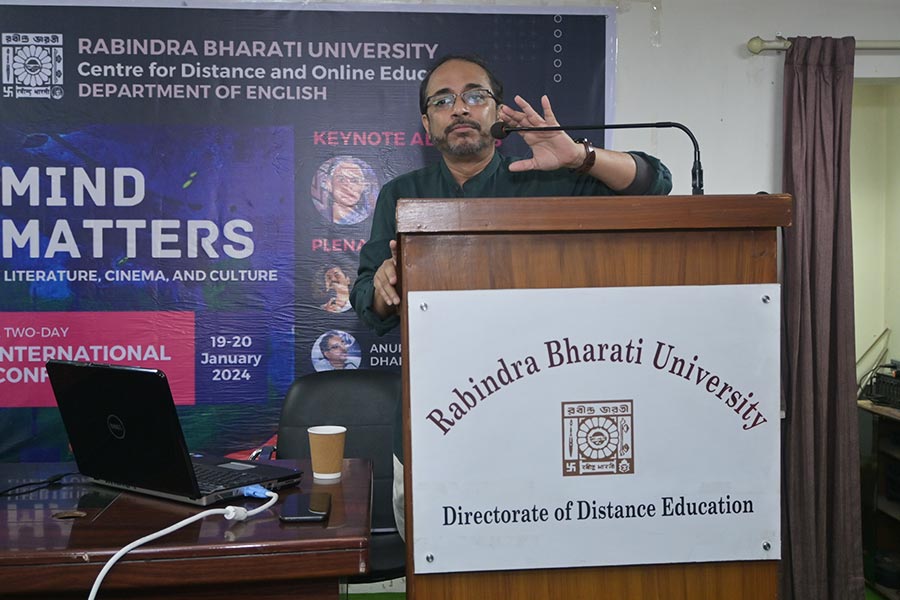
Anup Dhar explored the unconscious in repressive, non-repressive and surplus-producing dimensions
The second day of the conference began with the second plenary session, delivered by Anup Dhar, which was chaired by Amrit Sen, professor at the Department of English at Visva Bharati. Dhar’s talk entitled “The Mind-Matter Moebius in Psychoanalysis: Between Affective Neuroscience and Mediaeval Sahajiya” built upon the philosophies of Sigmund Freud and Jacques Lacan, Gilles Deleuze and Felix Guattari, as well as Girindrasekhar Bose, Sudhir Kakar and Ashis Nandy, exploring the unconscious in repressive, non-repressive and surplus-producing dimensions. It challenged Descartes’s “I think, therefore I am” by introducing the unconscious as the thinker, and traced the evolution of psychoanalysis from the “mirror of being” to the “canvas of new becoming.” The lecture further delved into the practicality of psychoanalysis by making it a “way of living/loving” and by incorporating insights from affective neuroscience and the mediaeval sahajiya (the cultivation of self).
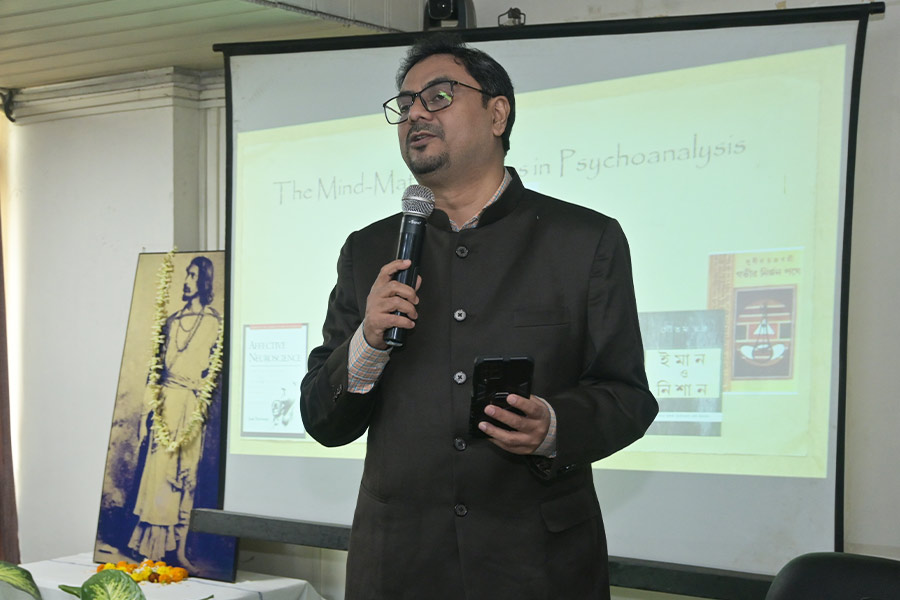
Amrit Sen analysed two novels of Henry Fielding at length
Dhar’s lecture was followed by the next plenary session on the second day, delivered by Amrit Sen. His talk entitled “The Two Worlds of Henry Fielding” dealt with two renowned novels of English writer Henry Fielding, Joseph Andrews and Tom Jones, written amidst tensions between neoclassicism and empiricism that informed the writings of the early 18th century. Sen’s talk examined how an evolving realm of writing (the novel) reconciled stereotypical characters and history by delving into Fielding’s treatment of time, character, space and the significance of plotting between his texts.
The concluding plenary session of the conference happened in the virtual mode, with Slovenia-based psychoanalyst Nina Krajnik as the speaker. Krajnik is the president of the Slovenian Association for Lacanian Psychoanalysis. Her talk entitled “I Think, Therefore It’s Enjoying: Language, Subject and Psychoanalysis” delved into a psychoanalytic approach to subjectivity in light of Descartes’s “I think, therefore I am”, and its subverted version in Lacan’s “I think, therefore it’s enjoying”. Her lecture emphasised on this shift, which in turn distinguished psychoanalysis from neuroscience, cognitivism and philosophy. She focused on differentiating between the “subject of knowledge” from the “subject of the unconscious”, and the attached implications of the imperative of enjoyment in the hyper-modern era. To establish her hypothesis of the presence of unconscious enjoyment, where language transcends information to embody pleasure, she discussed James Joyce’s Finnegans Wake.
More than 80 papers covering classical to contemporary discourses
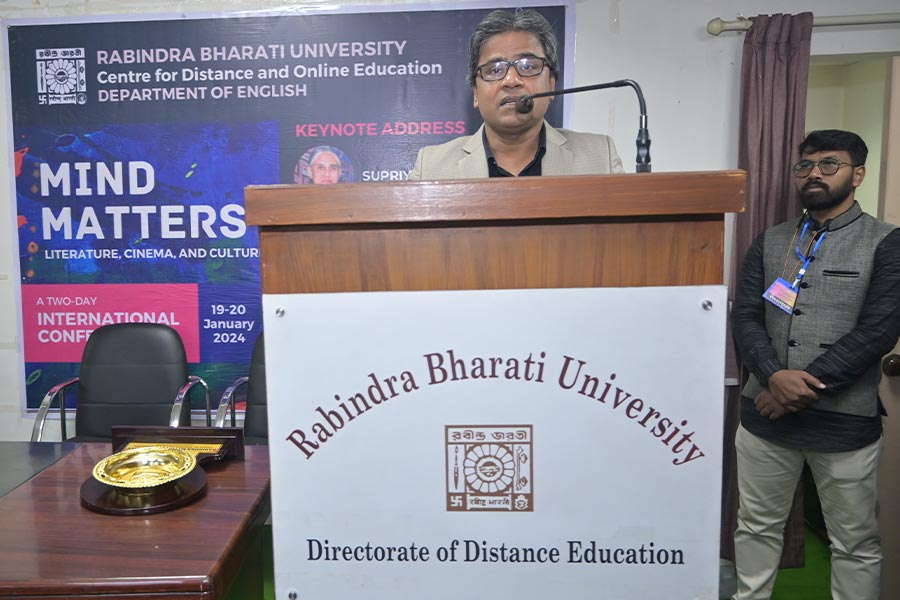
Ashis Kumar Das had delivered the welcome address for the event
On both days, the plenary sessions were followed by research paper presentations by scholars, undergraduate and graduate students, and faculty from various colleges and universities across India. Commending the success of the conference, Ashis Kumar Das said: “We have rarely seen a conference of the stature of ‘Mind Matters’ at CDOE. It gives us great honour to host speakers like Supriya Chaudhuri, who, in her inimitable grace, delivered the keynote and set the tone for the event.”
Assistant professors Aritra Basu and Rishiraj Pal were elated with the response generated across the two days. “We have been planning this conference since mid-November. To see the excitement of presenters and participants alike gives us a lot of joy. Choosing the 80-odd papers for presentation from more than 200 abstracts was the real challenge,” said Basu. “The discussions ranged from classical and contemporary philosophical discourses of the mind to affective neuroscience. This conference not only brought together scholars and professors from all four corners of the country but also from abroad,” added Pal.

